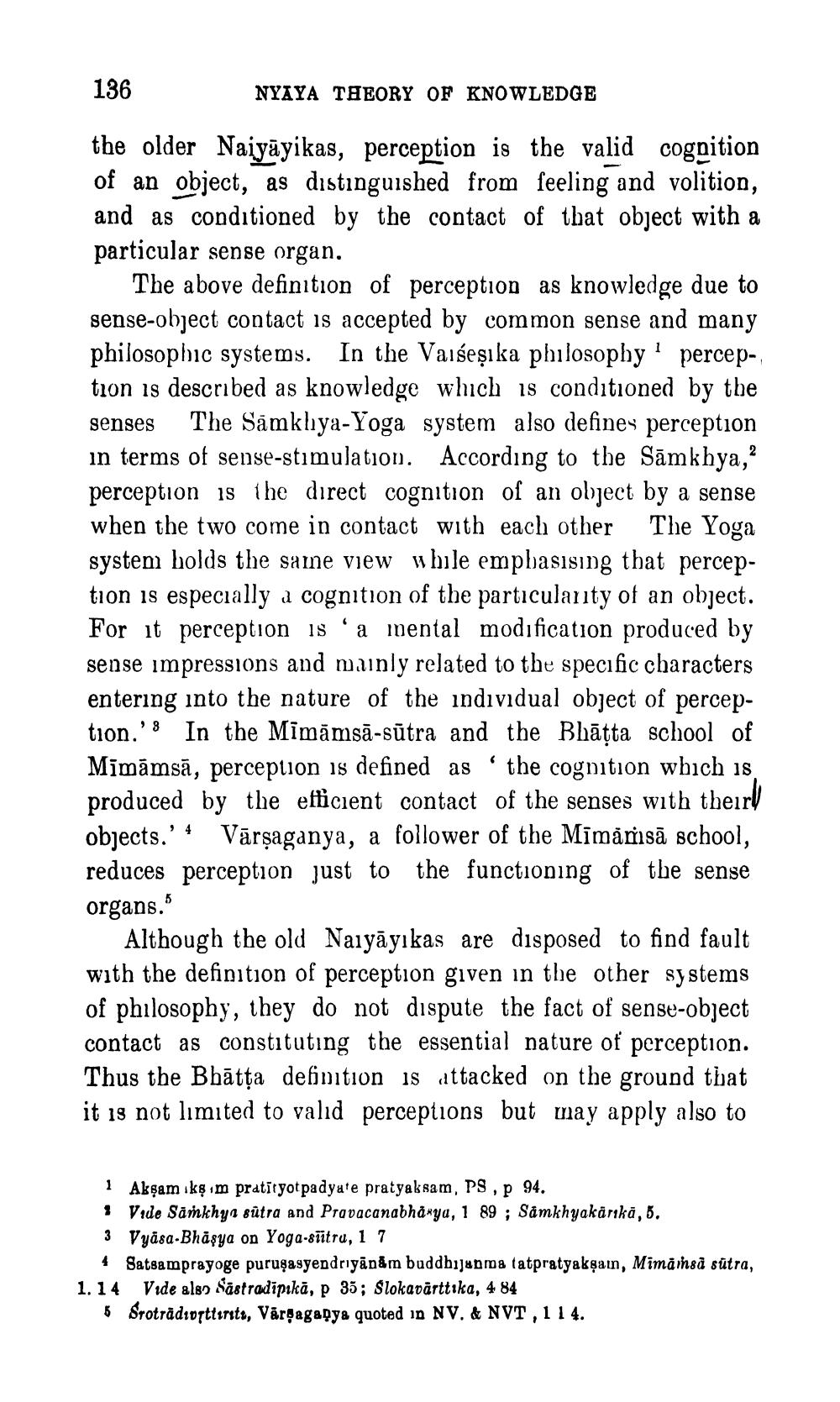________________
136
NYAYA THEORY OF KNOWLEDGE
the older Naiyāyikas, perception is the valid cognition of an object, as distinguished from feeling and volition, and as conditioned by the contact of that object with a particular sense organ.
The above definition of perception as knowledge due to sense-object contact is accepted by common sense and many philosophic systems. In the Vaišeșika philosophy' perception is described as knowledge which is conditioned by the senses The Sāmkhya-Yoga system also defines perception in terms of sense-stimulation. According to the Sāmkhya,? perception is the direct cognition of an object by a sense when the two come in contact with each other The Yoga system holds the saine view while emphasising that perception is especially a cognition of the particulanty of an object. For it perception is 'a mental modification produced by sense impressions and mainly related to the specific characters entering into the nature of the individual object of perception.'8 In the Mimāmsā-sūtra and the Bhāţta school of Mimāmsā, perceplion is defined as 'the cognition wbich is produced by the efficient contact of the senses with theiry objects.'4 Vārşaganya, a follower of the Mimàriisā school, reduces perception just to the functioning of the sense organs."
Although the old Naiyāyıkas are disposed to find fault with the definition of perception given in the other systems of philosophy, they do not dispute the fact of sense-object contact as constituting the essential nature of perception. Thus the Bhātta definition is attacked on the ground that it is not limited to valid perceptions but may apply also to
1 Akşam kşim pratityotpadyate pratyaksam, PS, p 94. : Vide Samkhya sutra and Pravacanabhäxya, 1 89 ; Samkhyakärikā, 8. 3 Vyasa-Bhäşya on Yoga-8īitru, 1 7
4 Satsamprayoge puruşasyendriyānam buddhijabma tatpratyakşain, Mimańså sútra, 1.14 Vzde al87 Sastradīpıkā, p 35; Slokadarttıka, 4 84
5 Sroträdıosttints, Vårsaga ya quoted in NV. & NVT, 11 4.




